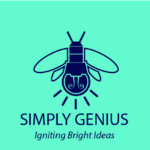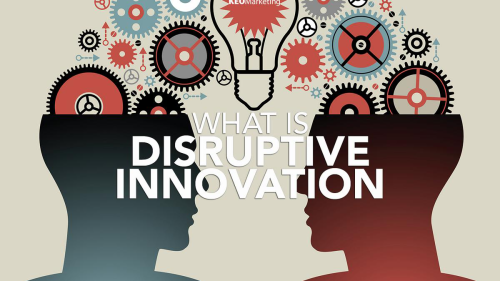
Did you know there are only three components to being a genius? Did you also know it has little to do with having a high IQ?

These three components are comprised of six traits within the genius mindset:

These six traits all reside within the intuitive mind. Their counterparts live within the rational mindset:

Yes, both mindsets are important and both have value, but when it comes to genius, the first is the more valuable.
What is the distinction between genius and intelligence? Well, in the simplest of terms, genius is where creativity resides. IQ is about intellect.
So, what is intellect good for? Intellect is about knowing. It’s the accumulation of knowledge through study and research. What we know as intelligence resides within the rational mindset and therefore is excellent for comprehending and understanding, and problem-solving. It’s a wonderful tool for analyzing and picking things apart, synthesizing them to discover the best results. This convergent style of funneling down helps us to determine a sound course of action based upon logic and empirical conclusions.
Genius, on the other hand, is completely divergent. It’s sometimes ungrounded and can go off in many directions, often on a seemingly nonsensical pursuit. One never knows what results they might find, or if it’s even practical to take the time and effort to pursue an idea. But this is where things get really interesting.
Everything we have today, everything we rely upon, everything that is beneficial and necessary to our lives, our growth, and our evolution, came from someone’s imaginative nature; their genius. And very often, these ideas were disruptive enough to change the direction of a field, introducing a new direction, a new way of life, thereby changing the very way we live, act, or think. This is the genius of Disruption.
Think about everything you use in your daily life. Electricity, medicine, electronics, your car, phone, radio, television, computers, the Internet, household utilities, food, clothing, transportation… This all came from someone’s wild, crazy, genius imagination, and was adopted into societal practices.

Every single one of these disruptions was once just a fantasy of imagination until a) someone created it, and b) it was adopted into societal practices and everyday use.

And that’s what Disruption is, something that comes from nothing, is adopted and used by society, and becomes an added value to our daily lives.
Intellect, however, still plays a vital role. In addition to problem-solving, intellect is useful when it comes to innovation. But first, let’s make sure we have a clear understanding of the differences between a Disruption and an innovation.
A little while back, the business world adopted and embraced a phrase coined by the late Professor Clayton Christensen, known as ‘disruptive innovation.’ In the business world of competitive advantage, this is a term used to describe a radical shift in new innovation. However, there is a slight flaw with this terminology.

One cannot have an innovation without a Disruption first occurring.
As mentioned earlier, a Disruption brings something new to the world. An innovation, however, is an incremental improvement on that Disruption. And both are necessary, especially when it comes to the survival and sustainability of businesses. With few exceptions, a Disruption cannot sustain itself without periodic innovations.
If there weren’t innovations for cars, there would be no safety measures in place for passengers, there would be no fuel efficiency, tires would wear out quicker, windshields and rear windows would be dangerous in an accident, and seatbelts would not save people in a collision. And now we have alternative fuel sources as a choice.
And what about the conveniences of automobiles? Better sound and radio equipment, navigational assistance, air conditioning and heating (and heated seats), finger-touch buttons on the steering wheel, Bluetooth, satellite, roadside assistance, and more. All of these are innovations that make your driving experience better, safer, and more enjoyable.

Think of Disruption as creation. Think of innovation as an improvement.
Disruption provides a new way to do things, and innovation keeps them viable. Remember how awkward and clunky mobile phones were initially? It was like carrying a car battery around with a corded phone attached. Now they are small and slip right into your pocket with ease.

Hopefully, you now have a clearer understanding of what Disruption is, and why it’s an important aspect of genius.
So, what exactly are the three components for mastering genius?
1: Cultivate Intuition. In order to develop a powerful genius mindset, you need to foster a stronger intuitive mind. And it’s not very hard to do. We’ve grown accustomed to deferring to the rational mind as the more essential of the two because society demands it of us. Rational has become necessary for survival thinking, and is useful for vetting concepts and systems, and also great for problem-solving. But we are all born with a naturally heightened intuitive nature, which over the years is slowly weeded out of us in order for us to ‘fit in’ to societal standards and decorum. The good news is that it is not hard to regain your intuitive genius if you practice some simple techniques.
Often dismissed as silly or less valuable, or unimportant, taking the time to daydream, fantasize, and imagine are powerful tools for developing a genius mindset. Initially, these have no seemingly practical application in the ‘real world’, but when it comes to creative genius, they are your most powerful weapons. Einstein and other great minds often deferred to these practices to examine an idea from all angles. They opened themselves up to many possibilities, and nothing was too far-fetched when it came to possibilities. Bending reality is nothing more than imagining and fantasizing beyond the scope of rational ideas.
The most immediate place we see these benefits typically resides within the arts. All artistic endeavors are both creative, fantasy-driven, and imaginative. And what would society be if we didn’t have the pleasures of these outlets?
The other place for intuition can be found is in all the wild ideas that lead to breakthroughs in invention, business, and industry. Again, everything we have today is a result of someone’s intuitive imagination. It’s not about chasing money that leads to the best results, it’s one’s willingness and deep conviction to trust in one’s intuitive path and staying the course to see where it leads.
2: Don’t problem-solve. I mentioned two things earlier, convergent thinking, and divergent thinking. One, convergent funnels down to a logical conclusion. And because of this, it’s limited in where it can go. Divergent thinking, however, is open-ended and draws no conclusions, so it allows for more imaginative and varied results.
Richard Feynman says it’s also why there are radical advances in medicine and science. Divergent thinking leaves the door open for any and every opportunity to go farther. Look at what computers are doing with graphic design and how creative designers have become, stretching the boundaries of what is possible. What about architects, engineers, and builders? Look at what 3D printing has given us. Advancements in science and medicine have been achieved not by problem-solving, but instead by looking where others weren’t looking, Marie Curie, Rosalind Franklin, Grace Brewster Hopper. All because of their divergent thinking styles.
Problem-solving is close-ended. It looks for one answer, one solution. It whittles away everything it deems unnecessary. It leaves little room for broader thinking. It doesn’t embrace wild ideas or theory. It wants absolutes. Yet breakthroughs often happen when ideas remain open-ended, imaginative, explorative. That’s when discovery is at its best.
3: Explore. No money or time for travel? Okay, what about hiking, going to the beach, investigating your backyard? Or just exploring by observing. That’s what Sherlock Holmes did. He saw the unobvious because he took the time a) not to draw conclusions, and b) to pay attention to the things we routinely ignore. Case in point…
“You see, but you do not observe,” Holmes tells Dr. Watson in the short story A Scandal in Bohemia. Holmes had asked the simple question of how many stairs lead to their 221B Baker St. apartment. Although Dr. Watson had climbed these stairs hundreds of times, he had no clue. “There are 17 steps, my dear man,” says Holmes.
How does one become a successful explorer? Simple, by becoming intimate with one’s curious nature and questioning everything. And not accepting things at face value. Challenge assumptions. Why is that so? How does that work? What makes it do that? Where did that word originate from? Why does every country agree that the color blue is called blue? Why do we say things like “hill of beans?”
It’s because the adult mind typically looks for conclusions. We have been conditioned to assume based upon patterns and routine habits. Our days are filled with so many demands of our energy and time that we’ve developed a mental shortcut to keep overwhelm from settling in. If one cannot immediately draw conclusions about something, it’s deemed a waste of time and energy. But this is wrong on so many levels.
Without one’s ability to become curious, we lose our natural inclination to wonder, explore, create, and eventually discover. We become complacent with the status quo. Can you imagine where we would be if Pythagoras, Copernicus, Galileo, Newton, Magellan, and others weren’t curious about what’s out there and challenged our assumptions?
The ability to explore is the capacity to expand the mind and thereby heighten one’s creative nature as well. The greatest Disruptors throughout history have been able and willing to maintain their explorative nature, which gives them the edge and advantage they need to push farther, challenge old ideas, and question the current condition of things.
Developing these three areas can encourage and ignite one’s latent, genius mindset to cultivate new habits of thinking that will take one farther than ever before. You just have to practice one simple concept… The next time your under-trained, intuitive, curious, creative mind peaks its head up and you’re not sure what to do with it, think about what a four-year-old would do and adopt those same practices as your own.
I guarantee that in no time, your genius mindset will come out to play more often